Today we travel to a future where we have to deal with crimes in space. Should you go to moon jail?
Guests:
- Loren Grush — senior space reporter at The Verge
- Michelle Hanlon — associate director of the National Center for Air and Space Law at the University of Mississippi and co-founder of For All Moonkind
- Erika Nesvold — astrophysicist and developer for Universe Sandbox and co-founder of The JustSpace Alliance
- Lucianne Walkowicz — astronomer at the Adler Planetarium in Chicago and co-founder of The JustSpace Alliance
- Bianca I Laureano — educator, curriculum writer, and sexologist
Further Reading:
- NASA Astronaut Anne McClain Accused by Spouse of Crime in Space
- The first alleged crime committed in space raises questions about jurisdiction in orbit
- Intergovernmental Agreement (IGA) on Space Station Cooperation
- Maritime Code
- Outer Space Treaty, 1967
- There Will Be Crime in Space
- Law & Order, or Game of Thrones? The Legal Landscape of Space Exploration
- Making New Worlds — What If Someone Steals My Stuff?
- Mass Incarceration: The Whole Pie 2019
- Is Prison Necessary? Ruth Wilson Gilmore Might Change Your Mind
- Think prison abolition in America is impossible? It once felt inevitable
- Prison Culture
- Transforming Harm
- What is Transformative Justice?
- Restorative Justice and Indigenous Peoples
- Restorative Justice Practices of Native American, First Nation and Other Indigenous People of North America: Part One
- The Restorative Justice City
Actors:
- Evan Johnson as Mr. Morton
- David Romero as David
- Ash Greenberg as Ash
- Santos Flores as Santos
- Charlie Chalmers as Charlie
- Grace Nelligan as Grace
- Ava Ausman as Ava
- Sidney Perry-Thistle as Sidney
- Arthur Allison as Arthur
Flash Forward is produced by me, Rose Eveleth. The intro music is by Asura and the outtro music is by Hussalonia. The episode art is by Matt Lubchansky. Special thanks this episode to Evan Johnson who coordinated all the teens you’re going to hear in this season, and who plays our intrepid debate club teacher this season. Here’s a fun fact about the intros this season, the actors, the teens, actually wrote their own scripts. I assigned them sides, and they had to come up with their arguments. So I actually did not know what they were going to say until we got into the studio. Special thanks also to Veronica Simonetti and Erin Laetz at the Women’s Audio Mission, where all the intro scenes were recorded this season. Check out their work and mission at womensaudiomission.org.
If you want to suggest a future we should take on, send us a note on Twitter, Facebook or by email at info@flashforwardpod.com. We love hearing your ideas! And if you think you’ve spotted one of the little references I’ve hidden in the episode, email us there too. If you’re right, I’ll send you something cool.
And if you want to support the show, there are a few ways you can do that too! Head to www.flashforwardpod.com/support for more about how to give. But if that’s not in the cards for you, you can head to iTunes and leave us a nice review or just tell your friends about us. Those things really do help.
That’s all for this future, come back next time and we’ll travel to a new one.
FULL TRANSCRIPT BELOW
▹▹ ▹▹ ▹▹ ▹▹ ▹▹ ▹▹ ▹▹ ▹▹ ▹▹ ▹▹ ▹▹ ▹▹ ▹▹ ▹▹ ▹▹ ▹▹ ▹▹ ▹▹ ▹▹ ▹▹ ▹▹ ▹▹ ▹▹
Hello patrons! Below you’ll find the transcript for this week’s episode. Hope you enjoy it, and thanks for your support!
▹▹ ▹▹ ▹▹ ▹▹ ▹▹ ▹▹ ▹▹ ▹▹ ▹▹ ▹▹ ▹▹ ▹▹ ▹▹ ▹▹ ▹▹ ▹▹ ▹▹ ▹▹ ▹▹ ▹▹ ▹▹ ▹▹ ▹▹
Rose: Hello and welcome to Flash Forward! I’m Rose and I’m your host. Flash Forward is a show about the future. Every episode we take on a specific possible… or not so possible future scenario. We always start with a little field trip to the future, to check out what’s going on, and then we teleport back to today to talk to experts about how that world we just heard might really go down. Got it? Great!
A quick content note, this episode does mention a case of sexual assault. We don’t get into the details, but I just wanted to let you know.
This is the last episode in our CRIME miniseason. After this, the show will take another quick break, and then I’ll be back in your delicate, waxy ear holes on November 5th. That mini-season will be a tiny bit different than these last three, and for more about that listen to the end of the episode where I’ll give you a bit of a behind the scenes breakdown. But for now, let’s go to the future!
This episode we’re starting in the year 2060.
***
Student: …outside..
Student: Hehehe, that’s why I never saw you.
Mr: Morton: All right, let’s get to it, shall we. Sydney. David. You guys ready to face off?
Sydney: Oh yes, I am.
David: Yes we are ready to face off. We’re so ready.
Mr. Morton: And just to refresh everyone’s memory, today we’re arguing about the very famous space hit and run case from 2043. You guys, perhaps, were too young to remember it, but it was big news at the time. The facts of the case go like this: Two private companies have built settlements on the moon. One of them is an American tech company, and the other is Chinese. One day, an American Rover runs over and kills a Chinese settler and her newborn child. And then, of course, chaos ensues. And who has jurisdiction in this case? That’s the question. Sydney you’re going to be up first, okay?
Sydney: Oh great. Do I just start?
Okay, so my first point is kind of a weird point but, we have a justice system on earth that’s designed for this. We have a justice system on earth that is designed for hit and run accidents. Why should that be any different from the moon? And sure, we have two different companies, two different countries, that are on the moon, but this is an American citizen and we have, we actually have policy for this. Let me find it. We have the Treaty on Principles Governing the Activities of States in the Exploration and Use of Outer Space, Including the Moon and other Celestial Bodies. And we also have similar things to this. We also have policy. So technically, the moon is international waters. Like, international not water, space, you know? You know what I mean?
Mr. Morton: Got you.
Sydney: So that means that the same policies apply. And so, if someone is to commit a crime on a boat, and they’re an American citizen, then guess where they will get prosecuted? In America, not on that ship. So why should this be any different? And also I would like to say that if this company is ready to invest billions of dollars into getting these settlers up to the moon, then they should be ready to take responsibility for when that goes wrong, and for when something happens like this. They should be ready to take people back down to the surface to be tried in a court of criminal law.
Mr. Morton: Okay, interesting.
David, your thoughts.
David: If this type of crime on the moon has been unheard of before now, this case will definitely set a precedent. And if that precedent is to send people all the way back to Earth for trial, it would cause a number of large problems. The first being money. Money is what makes the world go round. And it’s also what makes spaceships go around the world. A trip to the moon and back would be expensive, and although it’s only one case now the precedent could lead to billions of dollars to do what? Send settlers from the moon back to Earth. Why? To be judged by a jury of not their peers, but people who live on a different planet. They may have grown up their whole life on the moon, and suddenly they’re on this foreign planet being judged by these people who have no idea about their culture. Cause, because, the moon will obviously have a different culture; a different atmosphere, if you will. And so the people of Earth wouldn’t understand their struggles, their motives, their life, or even their way of living, because the moon doesn’t just have a different atmosphere, it doesn’t have an atmosphere. People will have to live indoors, or go outside in pressurized suits. Murders could be committed in ways that the people of earth just don’t understand. Accidents could happen that would make the Earthlings of the jury, who don’t know the risks of living on the moon, jump to the conclusion of murder. And even if we dealt with all those problems we still go back to money. Because what will start out as just a hole in our government’s budget will become something impossible to deal with as the colony grows and grows. Eventually sending all the criminals back to Earth just won’t be feasible anymore. At that point we will need a criminal justice system on the moon. So why not start early, at two people being murdered by a rover in the early days of the colony?
Mr. Morton: All right. Sydney, time for you to ask David your question.
Sydney: Okay, so say this guy moon murders someone. This guy did moon murder someone. Okay, so the moon police catch him, the moon courts say, “Yeah. He’s guilty.” Then he goes to moon prison. I love that phrase. Now the problem is here, prisons need resources, and resources are not in abundance on the moon. There is oxygen that they need to keep these prisoners alive. There is food and water and heat. And why would we put this much effort into bringing these criminals, these murderers, these bad people, so much into our society? Why should we care for them? They killed people?
David: Well. I was actually interested in that. And the thing is, like I said before, the moon is a different planet. It it is going to have different things. And it is, like I said, it’s eventually going to need a criminal justice system, which, so people are eventually going to have to figure out how to deal with that. It doesn’t have to be prisons. The prison system is something that’s been such ingrained into our society, that we, like, as Americans, or as people of most of the places in the world, can’t really think of a way that it wouldn’t be there. But if they could. there are definitely, there are people who are proposing different ways of dealing with the problem than prisons on the moon. And it’s not something that we can just ignore.
Sydney: Can I jump in here really quick?
Mr. Morton: Yes you can.
Sydney: Okay, so let’s say one of these moon things… how do we know that these people won’t commit the crime again? And let’s say they do commit this crime again. What happens next? We can’t put them in moon prison because moon prison doesn’t exist. Would we send them out into the moon to just starve to death? Freeze? What would happen?
David: The thing is, that’s, that’s a question that I personally can’t answer right now.
Sydney: You know what is prepared for things like this? Earth prison.
David: That’s true.
Mr Morton: Class, what do you think? So, the settlers on the moon, those who commit crimes, should they be brought down to earth and tried here, or should they work out their own system?
Sydney: Have you asked your question yet?
David: No. I thought we were gonna ask them, then I guess my question.
Student: If I’m correct, the people were killed by a rover.
Mr. Morton: That’s correct.
Student: So, I don’t think that would count as murder, really.
Mr. Morton: Well it was… people were driving and operating the rover, and just like here on earth.
Student: Kind of like, it could have been like manslaughter hit and run.
David: Yeah. Exactly exactly. It could have been something like that, which the earth courts who don’t know, they don’t know like the culture the moon. They don’t know, like, when people would be normally driving around the rovers. They don’t know the things about, like, you know, like when they would be driving around the rovers, like how, if the rovers have some things that could kill people, but it’s really just standard practice on the moon. They don’t know that culture of the moon. And they also don’t know the technicalities of the gravity aspect, so it’s really, it’s not fair to judge someone, of a judge and a jury on earth, who lives on the moon, whose crime was committed on a whole different planet, with a whole different culture, and a whole different physical gravity and atmosphere, and way of life, and way of living. And you can’t just, like, tear someone away from their home and make them be judged against a bunch of earthlings from a different planet.
Student: Well, vehicular manslaughter on the moon is still vehicular manslaughter. I’m not sure if you understand the gravity of the situation, and yes that pun was intended.
Student: If you’re in a different area, in the place, in your surroundings, you should like… this is somewhere completely different. We should build rules based off of what this place is.
Students: [Arguing]
Mr. Morton: So let’s check in with the whole class here, if you’re pro Moon courts raise your hand.
Student: Honestly, I don’t think it matters that much.
Student: I’m a little divided.
Mr. Morton: So if you’re con, say con.
Student: What is that?
Mr. Morton: If you’re against the moon courts.
Sydney: What I’m saying is that laws should be added on the moon, like some specific situations can only happen in zero gravity on the moon. But that doesn’t mean we have to entirely reshape a justice system for this.
David: But, we should.
Student: Well, I should say we have a justice system in America, why do we need it in other countries?
David: Yeah, we have a different justice systems are for the different places. This is a different place. It needs a different justice system, and it’s going to need one… like, it’s going to happen. And so it should happen sooner. It’s a different place with different rules. It, like, it has a different culture. It’s like, it’s like, how different countries do.
Mr. Morton: Well we could, we could debate, you know, systems of government for hours, and hours, and hours. We unfortunately, I’m looking at the clock here and we are out of time.
Student: Oh man…
Mr. Morton: So I’ll have to wrap it up for this week. These have been very, very, incredibly, just activating and exciting topics, and I’m just so glad and delighted to see how you’ve all grown over the course this year in debate club. This has been the last and final debate of the school year. But we’re gonna have a fantastic party next week. So, please I encourage all of you to bring something if you’d like. It is a potluck. So yeah, feel free to …
Student: I’ll bring myself.
Mr. Morton: See you at the party next week.
David: Let’s do it.
Sydney: Yeah.
Student: Great job.
Mr. Morton: All right.
Rose: Okay! SPACE CRIME! MOON COURT! Honestly I would watch Moon Court, the TV show. Who would host that show? The honorable judge Janelle Monae? Maybe bailiff Willow Smith? Networks, call me.
Anyway, this whole season has been about crime on our Earthy planet. About surveillance, and technology, and forensics, and how all of that might change who gets accused, and caught, and convicted. But what happens when we take all that stuff, and put it into a totally foreign and hostile environment?
Let’s just launch right into today’s big case. Do you get it? Launch… okay sorry.
Loren Grush: So it really boils down to kind of a bitter divorce.
Rose: This is Loren Grush, a senior space reporter at The Verge. And this bitter divorce involves two people: a woman named Anne McClain, and a woman named Summer Worden. And recently, Worden accused McClain of logging into her bank account without permission.
Loren: She accessed what she said was a joint bank account between the two of them, to move around funds, to make sure that bills were being paid. But Anne’s wife, Summer Worden, claims that she did that without her permission. And so, is essentially accusing her of identity theft
Rose: Normally this would just be… a regular domestic dispute. Why are we talking about a couple’s, honestly kind of boring, dirty laundry on this podcast?
Loren: You’re right, when I first read about it I thought, “Who cares?” But, then, this is kind of the first time, If it turns out that Anne is convicted; it would be the first time someone had committed a crime while physically being in space.
Rose: You see, Anne McClain isn’t just a regular person.
Loren: So, Anne McClain is one of NASA’s astronauts.
Rose: If her name sounds familiar, it might be because she was the center of a completely different controversy a few months ago.
Loren: Because she was supposed to go on the first all female spacewalk, on the International Space Station. But unfortunately, she withdrew herself from that spacewalk because of inappropriately sized space suits available on the International Space Station. And so, her taking herself out of this spacewalk caused a bit of hoopla, when it was thought that NASA canceled the first all female spacewalk to replace her with a man.
Rose: Now, I do want to say that before the New York Times piece that broke this story about the identify fraud accusation came out, my understanding is that Anne McClain was not publicly out of the closet. So, not only is this messy, personal drama that would normally never make the New York Times, it’s also drama that has outed someone. Which is not good! And again, the only reason any of this interesting, the only reason that this is a story, is that it’s the first ever space crime.
[Law & Order theme]
Or at least, it’s the first ever space crime in which the alleged victim has sought legal recourse. Personally, I have a hard time believing that zero crimes have ever been committed in space.
Loren: I’m sure that there have been things done in space that could probably be considered dubious. And, you know, there are certain things that astronauts have done that have been against the rules. My favorite that comes to mind is the Skylab mutiny, as it’s called, though it can be debated if it’s a mutiny. But it was this time that a bunch of astronauts, in Skylab; they decided that they were being overworked, and so one day just decided not to do any of their work and looked out the window at space. I don’t know if you could call that a crime, but they were definitely not doing what NASA wanted them to do.
Michelle Hanlon: So, there’s a lot of myths, you know, or legends.
Rose: This is Michelle Hanlon. She’s the associate director of the air spaceflight program at the University Mississippi School of Law.
Michelle: There’s a cosmonaut story where somebody became untethered, and the the other astronaut waited until the very last minute to retether of them. This is definitely the first public crime in space, if you will.
Rose: In those other, rumored cases, nobody got the courts involved. Nobody charged anybody with a crime. And so this strange, personal domestic dispute has become international news. And it’s international news because it’s a window into tomorrow, into the kinds of questions we’re going to have to ask sooner than later.
Michelle: We’re sending humans to space. And while the astronauts that we send to space right now are particularly unique, and phenomenal individuals; they are carefully selected from whichever country they come from. They have exhibited tremendous amounts of discipline, self-discipline, of intellect, of physical capabilities. That’s not always going to be the case.
Rose: What happens when they start sending bozos like you and me up there? And when we come back, we’re going to get into what, exactly, the law says right now about space crime, and what it doesn’t say. What do pirates have to do with any of this? And does Elon Musk have to follow any of these rules? All that and more, after a quick break.
[[BREAK 1]
Okay so what laws actually govern space? It turns out that this purported identity fraud, despite being the first space crime – which sounds very exciting – this particular incident is actually very straightforward.
Michelle: In this case is just cut and dried.
Rose: On the International Space Station, there is something called the Intergovernmental Agreement.
Loren: And it’s a document that kind of dictates, you know, who is in charge or what laws will apply if another person on the space station accuses them of doing something that’s wrong, or committing a crime.
Michelle: And it has an entire article about crimes in space, or crimes on ISS. And what’s very, very clear is that if a crime occurs, and only the nationals of one state, one country, are implicated or affected by that crime, then it stays wholly within the jurisdiction of that particular country.
Rose: Because both Anne and her estranged wife are US citizens, this will be handled in US court. But the case has brought more attention to the places where the law is far less clear.
If Anne McClain had committed a crime against, say, a Japanese astronaut, things get a little more complicated.
Michelle: It says, basically, that the parties will agree to talk about it, and figure out which jurisdiction should apply. Think about things that happen on earth, across borders. We talk about extradition. We have diplomatic meetings and negotiations about what should happen with respect to certain crimes. And that’s exactly that… that’s the tenor of the Intergovernmental Agreement.
Rose: So if Anne was accused of committing a crime against a Japanese astronaut, then the US and the Japanese governments would have to talk to each other, and come to some agreement about how and where the case should be tried. But the Intergovernmental Agreement only applies to the International Space Station. It doesn’t apply to, say, any future settlements on the Moon or Mars, or a space hotels that various private companies have talked about launching.
Michelle: If you have a guest from Japan, and you have a staff member from Finland, and you have another guest from Chile, and one accuses the other of of hitting them, or of defaming them, or stealing something; what law applies there?
Rose: Right now, the Outer Space Treaty says that nations are responsible for their people in space.
Michelle: There is one clause that says you, as a country, are required to supervise any of your own citizens that go into space.
Rose: So even if you’re on a private craft, if you’re an American, the US is responsible for you. If you’re Japanese, Japan is responsible for you. So if, say, someone from New Zealand is accused of a crime against someone from Finland, on a Japanese space hotel, what happens?
Michelle: So New Zealand is the thief. Finland is the victim. The alleged thief, I should say, for all those Kiwis out there. New Zealand’s going to say, “Well, you should prosecute that person here.” But a smart plaintiff’s attorney is going to say, “All right, a bad thing happened, but who’s responsible?” Under the Outer Space Treaty, the states themselves are responsible. So Finland… a smart Finnish plaintiff’s attorney is going to say, “I’m going to sue New Zealand for the value of the watch, and all of the pain and suffering and the emotional distress that came out of what happened.” And that’s what would happen because we don’t recognize human behaviour in space. We only recognize the activities of states.
Rose: And without a clear set of rules, this kind of lawyerly finagling is going to become common.
Michelle: When we have areas of law that are very cloudy and gray. who wins? The lawyers, right? Because they’re the ones who are getting paid to figure out how to get through this maze of whether they’re common law cases, and so forth. When we’re looking at space, we don’t want to spend our money on lawyers, we want to spend it on getting out there and exploring more.
Rose: There’s also a framework here that people sometimes use, which basically says that space is like open water. So, the law of the sea applies.
Loren: It’s called the Special Maritime and Territorial Jurisdiction of the United States, and it basically says if you were to do something bad in space, and you’re a U.S. national, this type of part of the criminal code would apply.
Rose: But the maritime code really only deals with the big ticket items.
Loren: It really kind of covers the nastier things, like assault, and kidnapping, and robbery. But most crimes these days, or at least a substantial amount of crimes these days, aren’t that.
Michelle: When you think about what is going to happen; what do we have to be prepared for? I don’t think it’s murder. I think it’s going to be slip and fall. It’s going to be, “Hey, you know, somebody stole my watch.” It’s going to be things that happen to us every day in life.
When I teach Space Law, here in Mississippi, I talk a lot about how space is everything, and it’s all encompassing. And we need family lawyers in space, and we need finance lawyers in space. So, we like to – as academics and as journalists, and as people who want to get a conversation started – we talk about murder, beacuse its sexy, and could you imagine? And, of course, murder in space would be so easy. Just cut that line, or just throw that person out of the station. But, it’s really, fundamentally, the very human things that sometimes get overlooked, that we need to deal with in space.
Rose: But it’s also kind of hard to exactly figure out what the laws should be. Because we don’t know what space is going to be like.
Michelle: What’s a moon community going to look like? And who’s going to be there? We can’t send people to the moon with this whole entire pop up jurisdictional plan
Rose: In the intro, you heard the student actors talk about whether or not you could even have a jury of your peers if you have people from space tried back on Earth.
Michelle: I want all those students in my law school. Yeah, tell them to apply the University of Mississippi, because these are the kinds of things we talk about all the time. Because I’ll be honest, that’s the first time anybody has raised with me the concept of the jury of your peers. So kudos to those students, because that’s a really great point. Is it a jury of your peers, if you are being judged by people who have never been to the moon?
Rose: You hear that, teens! You’re smarter than law students!
But Michelle does think we can start by laying down some really basic foundations.
Michelle: Okay, any human in space will have these 10, 15, 20, basic rights. And so anytime anybody goes to space, we agree to these things. And it’s so basic. A right to oxygen, right? A right to an independent line of communication back to Earth. So we don’t have to worry about company towns blocking communications between workers and home. Things like to move the rights enumerated in the U.N. Declaration of Human Rights into space.
Rose: But we also want to be really thoughtful about what we do and don’t want to replicate in our space travels.
Erika Nesvold: In general, what I see is that people assume that we will copy and paste a lot of what our current society looks like into space.
Rose: That is Erika Nesvold, an astrophysicist and developer for Universe Sandbox, and the co-founder of the Just Space Alliance.
Lucianne: One of the reasons we might want to think about not copying and pasting our current approach to legality, is that there are a lot of issues with it.
Rose: And this is Lucianne Walcowicz, an astronomer at the Adler Planetarium in Chicago and the other co-founder of the Just Space Alliance.
Lucianne: Foremost among them is that I’m not sure that I would characterize the criminal legal system we have as seeking justice as its primary objective. Its primary goal is retribution and punishment, and not necessarily justice in a way that I would define justice.
Rose: I’ve talked about the problems with the incarceration system in the United States on the show before, but a quick recap: prisons in the United States are directly descended from slave patrols and chattel slavery. Today, in the United States, there are nearly 2.3 million incarcerated people. The US locks up more people per capita than any other nation — 698 per 100,000, which is really high. And of course those incarcerated people are not evenly distributed across the population. The US prison system is deeply flawed, and I’ll link to more resources on that in the show notes, but the point is that we probably want to think twice before we simply package up this whole arrangement, and ship it out into the solar system.
And even beyond the many, many, ethical reasons to question whether this is a structure we want to replicate, there are also a ton of logistical reasons that prisons are probably not a good idea in space.
Erika: Just to build a prison takes a lot of resources, and labor, and energy, that you could be spending on building farms or habitats on Mars, or wherever you are. And then keeping people in prison is just a waste of their time, and labor. You have to feed and house and keep your prisoners warm, and they’re presumably not giving you any labor in return for that, as they would if they were functional members of your society.
Rose: So if you’re not going to build and run a prison, what are your other options?
Erika: Shipping them back to earth is going to be extremely costly, in the same way that getting out to Mars is going to be really costly. And then, what are your alternatives? You could force them to work, but prison slave labor is generally frowned upon, by most people, when they think about it. And also impractical, in that they don’t tend to be very good laborers, in that case, because they’re pretty unhappy with you.
Rose: There is the version of justice you often see on science fiction shows, where people are constantly being thrown out of airlocks.
Erika: You could banish them, but in a space settlement, that’s probably essentially the same thing as killing them.
Rose: In space settlements, especially the early ones, each person is both a resource provider, and a resource suck.
Michelle: If you are in a community – probably let’s use Mars, because it’s a bit farther away – of 40 people. and you have rations for a certain amount of time, and a murder is committed, why do you want to keep on feeding and housing that murderer, right? That’s a waste of really valuable resources, if it’s somebody that you can’t trust, and you have to sequester somewhere.
Rose: But, on the flip side, remember, you don’t have a lot of hands in your early space colony. Unless someone has done something truly heinous, you probably don’t want to throw them out into the icy depths of space to die. Even if you believe the death penalty is sometimes warranted (which, for the record, I do not) you probably need to figure out what to do with lower level offenders. And if death is going to be a potential punishment, you definitely want to feel very confident in the process of deciding on that penalty for someone.
Erika: It tends not to occur to them that if you go for an “airlock for every crime” sort of system; it doesn’t occur to them what they might feel that if they were the ones accused of crime.
Rose: And in space, the conditions also might aggravate a type of injustice we already see today on earth — where certain people are treated differently by the legal system.
Erika: I worry that things will happen like, maybe the person accused of a crime has vital skills for the survival of the settlement, maybe they’re the only doctor. Does that mean that their judgment, and their punishment, or corrective measures that the society thinks are necessary, are less harsh for them than maybe someone whose skills are replicated by someone else? Are we going to end up with a stratification of society where criminal justice applies differently to different people because of what they can contribute to the settlement? That worries me.
Rose: But, here’s the thing — we don’t have to do things the way we do them on Earth. Space isn’t exactly a clean slate but it’s certainly a new opportunity. It’s a place where we could actually rethink certain structures, certain ways of doing things that on Earth feels so entrenched that they are hard to change. Not impossible – I want to say, we should never resign ourselves to injustice because changing things seems hard. But in space, there’s nothing to change yet, we have a real change to reconsider what justice might look like.
Lucianne: These conversations, and this kind of fictional, science fictional, space are invitations to re-evaluate the ways that we are implementing the values that we purport to have.
Rose: So, what are those values — what do we want justice to look like. One version of justice that has been floated here on Earth, and that could be implemented in space, is something called transformative justice.
Bianca Laureano: Transformative justice is an alternative to incarceration. I’m Bianca Laureano and I’m an educator, and I focus on human sexuality as well as being a human on the planet that we’re living on.
Rose: And I called her to talk about justice off this planet, and how transformative justice might work … in space.
Bianca: Talking about having someone just be tossed out into the ether. That’s also real, that’s very real. And there’s so many things that come into play with what’s possible.
Rose: All that and more, after a quick break.
BREAK
So this is not the first time that I’ve talked about transformative justice on this podcast — you can hear more about it on the Robocop episode. But the basic gist is that transformative justice really tries to shift the conversation about justice away from punishment, and towards repair.
Bianca: And it offers the opportunity to everyone involved, including the person who’s done harm and the people who were harmed, to be able to share what their experiences were. And focus on what can happen to make amends and move forward as a community.
Rose: One of the challenges in explaining how transformative justice works, and what it is, is that it’s different every time. Which makes it hard to scale and standardize, and also sometimes hard for people to understand what it even is.
Bianca: It’s hard work. It’s not easy. And that totally makes sense for people who are like, “I don’t get it.” It makes sense because it’s constantly shifting and changing, because harm looks different and impacts people differently.
Rose: Each community, and each victim will have their own process here. But usually what happens is that the victim assembles a group of people, called a pod. And their job is to gather information, and kind of serve as a resource to the person who has been harmed, and figure out how to help them move forward. And sometimes, that does involve reaching out to the person that we would traditionally focus on — the person who did the harm, the perpetrator.
Bianca: Sometimes what it looks like is a letter, or phone call, or an in-person meeting, where the inner circle people reach out to this person say, “Hey, we understand that this harm has occurred, and we want to know if you’re interested in joining this process.”
Rose: As you might expect, not everybody says yes to that request.
Bianca: Sometimes those people say no. Sometimes those people will make their own archive and talk trash. There’s so many different reactions from the person who is identified as the one causing harm.
Rose: But the key point of transformative justice, and I think the thing that is hardest for some of us to wrap our minds around, is that it’s not about punishment, it’s about repair. How do we make sure that the victim gets what they need, and can heal? Now, there is another method here, that is related to transformative justice but not the same thing, and that’s called restorative justice.
Bianca: Restorative justice really does bring the people who did harm, and the people who were harmed, together in a very specific way with the goal of not disposing of this person in a way that can really cause additional harm. So, restorative justice has a different approach to divesting and disposability, but also focusing on what’s possible for the entire community. So, it takes a different approach.
Rose: In general, and again there’s no one way this goes, transformative justice usually focuses on one party, usually the victim. And making sure they can move on and be healed.
If this all sounds kind of hard to understand, that’s normal. But it’s also really important to note that this way of handling bad things that humans do to one another is way older than courts, or jails, or judges. Restorative and transformative justice has been the way that so many communities have handled the messiness of human behavior, particularly indigenous communities all over the world. The biggest challenge to applying them to, say, the United States, is that they are sometimes hard to scale. Each process looks different, and can take a really long time, and might not always work.
Bianca: I haven’t really seen any – I’ve seen one – transformative justice approach that has actually come to an end, and it was fulfilled in the way that all the parties wanted.
Rose: It was a case in Chicago, and we’re not going to get into the details, but you can read the full account of what happened at https://transformharm.tumblr.com/. But the basic gist is that a young man sexually assaulted a young woman at an event for an organization called the Black Youth Project 100. And this woman did not want to get the police involved in this case.
Bianca: And that young, black woman chose to go to the leadership of the BYP chapter in Chicago, and share that she really wanted some kind of process to help this young person understand what he had done to her, how he had harmed her, how this had infected her experience with herself, with her community, with building relationships with other men, with trusting activists and organizing circles.
Bianca: And in this case, when they reached out to the man who had assaulted her, he actually agreed to participate. At first, they communicated through proxies, so they didn’t have to be in the same room. But after a long process, they eventually did meet face to face.
Bianca: They were able to speak to each other face to face, and in 3-D. And this young man was able to say, “I hear what you’re saying, and I understand this harm, and I’ve had to unlearn it.” And it’s been an amazing gift that he was able to go through this process with her.
And so that was the only, or the first, process that I saw that worked. And it took two years. And so that’s something I really think is important for people to understand, is that when you enter a transformative or restorative justice approach, it does not end quickly.
Rose: And this is why some people poo poo the idea of trying to replace the carceral system with something like restorative or transformative justice. Because it’s hard, and it takes a long time, and it doesn’t always work, and it’s really had to figure out, sometimes, how to make this kind of system fit into a culture obsessed with efficiency and scale. But in space, where you are going to have to operate in a much smaller community, and you’re going to have to figure out how to address harm done, and move on together, otherwise you put the entire settlement at risk, this is a method that could actually work.
Bianca: For a future where it’s going to be small groups of people who are surviving, I think one of the biggest goals would need to be: how do we preserve what we hold right now? How are we going to preserve the parts that make us whole, and what can we do moving forward?
So, yes, I think it’s really complicated. It’s not a quick and easy way to imagine, but I find it a fun activity to really dream about what else is possible. Especially when this is the world that we’ve inherited, and we need to dream a little bit bigger.
Rose: And space could even be a mini-justice lab. Where people try out all kinds of alternatives, and try and figure out the best ones. And maybe, we can then take that knowledge from space, and bring it back down to help make our Earth justice more… well… just.
Lucianne: One of the things that’s exciting about conversations like this is that it really invites us to think about our values in a very concrete way, in terms of taking those values and creating something out of them. And that is also an invitation to look at the values that we are currently implementing in our current systems here on Earth.
Rose: What’s most important, I think, is that we don’t just assume that the big structures in place right now, on Earth, are in some way natural, or perfect. They’re not, we know that, and there can be better ways. Let’s not just copy and paste the things that are not working on Earth, into the solar system.
Erika: One of the fun things about thinking about space settlement is that it lets you imagine what a great society you could make if you were designing one from scratch. And so, even if we don’t get there in my lifetime, if having those conversations can improve things here on earth that seems like a happy accident to me.
Rose: Space can be an opportunity to really reconsider how a community can, and should be built. Let’s not throw that opportunity away.
[music up]
That’s all for this future, and for this mini-season! Flash Forward is produced by me, Rose Eveleth. The intro music is by Asura and the outtro music is by Hussalonia. The episode art is by Matt Lubchansky. Special thanks to Veronica Simonetti and Erin Laetz at the Women’s Audio Mission, where all of the intro scenes were recorded this season. Special thanks also to Evan Johnson who played Mr. Morton and also coordinated the actors of the Junior Acting Troupe who play the students in the intros this season. Today’s debaters were played by Sidney Perry-Thistle and David Romero. If you want to hear the full debate, unedited, which includes a lot more fun and weird arguments about moon court, you can hear the full cut of the students conversation by becoming a Patron at $5/episode or more, which gets you access to the Bonus Podcast.
If you are a patron at $5 or more, and you’re heard the Bonus Podcast, you already know this, but I do want to just pop in with a bit of behind the scenes about the show and the future of the show. So this year, as you may know, I tried something new with these mini-seasons, where all the future scenes are linked up, and all of the episodes have a common theme. I thought it would be a fun, big swing kind of experiment, and linking up the intros was a really interesting challenge for me, and I, honestly, really enjoyed it. Turns out, many listeners, did not enjoy it. And I’ve heard enough hate for this structure, and the mini-season intros — whether that was The Snowglobe, or the friends from the future, or the debaters, that I’m going to stop doing these linked up intros. I still will do a themed mini-season starting in November, five episodes weekly about POWER. And then next year, I’ll go back to the old format. I’m not going to lie to you, I’m kind of bummed that this experiment didn’t really work the way I had hoped. But, you live and you learn I guess! So for those of you who stuck around even if you didn’t like this new format, thanks. I really appreciate it. And if you know someone who stopped listening because they didn’t like the intros, tell them to come back? I guess?
If you want to suggest a future I should take on for the next mini-season, or for the next year, send me a note on Twitter, Facebook or by email at info@flashforwardpod.com. I love hearing your ideas! If you want to discuss this episode, or just the future in general, and share weird links with other listeners, you can join the Flash Forward FB group! Just search Facebook for Flash Forward Podcast and ask to join. And if you think you’ve spotted one of the little references I’ve hidden in the episode, email us at info@flashforwardpod.com. If you’re right, I’ll send you something cool. And if you’re waiting for your something cool from a previous episode, I’m going to do them next week. I try to do them in batches, because it takes a long time. Okay! That’s all for this episode, and this mini-season. Come back next time, and we’ll travel to a new one!

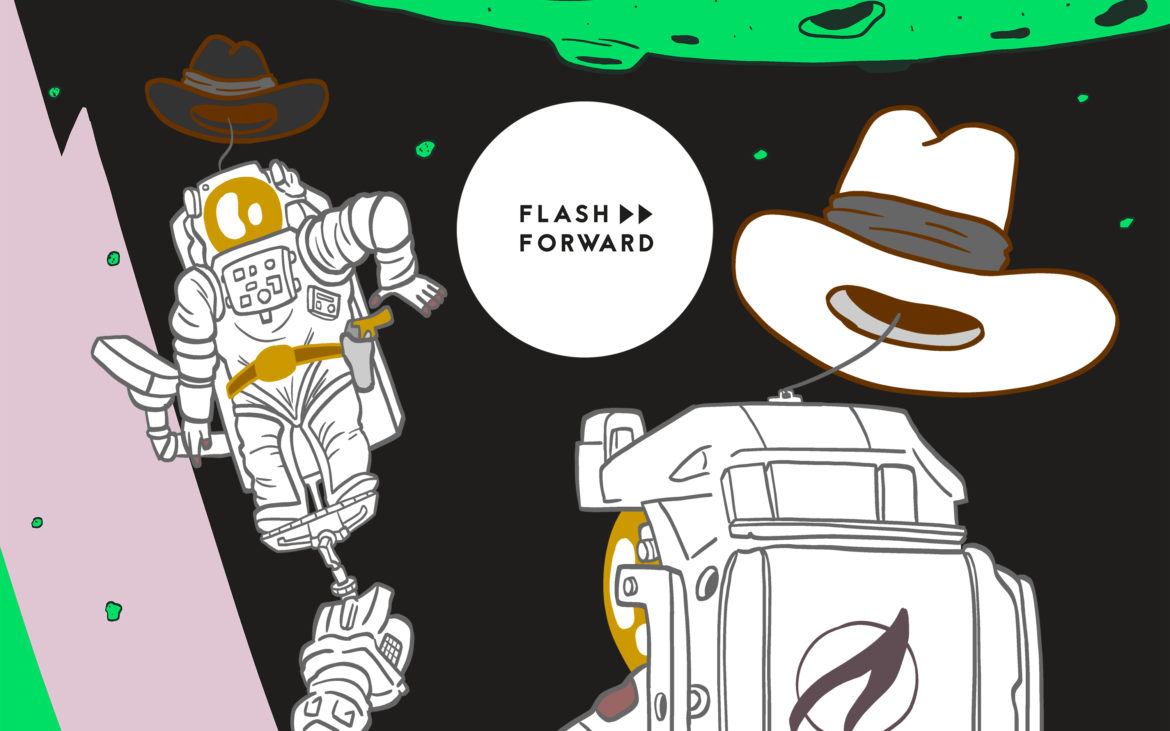
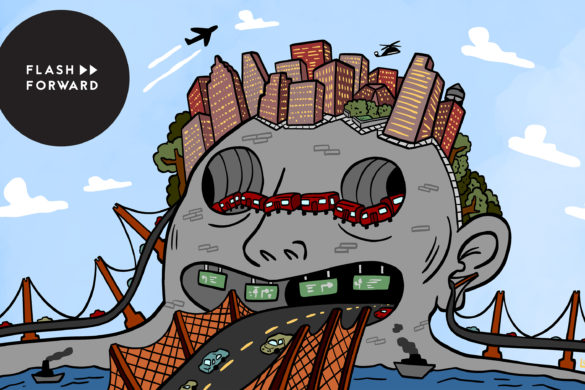
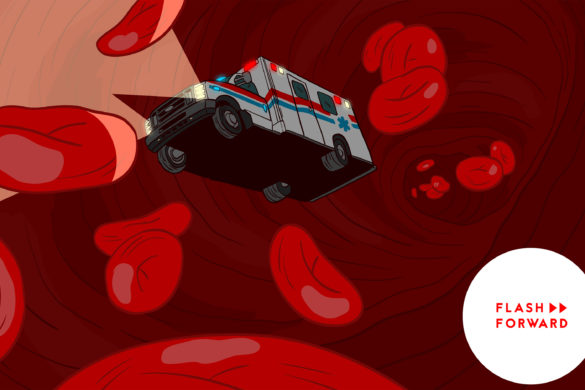
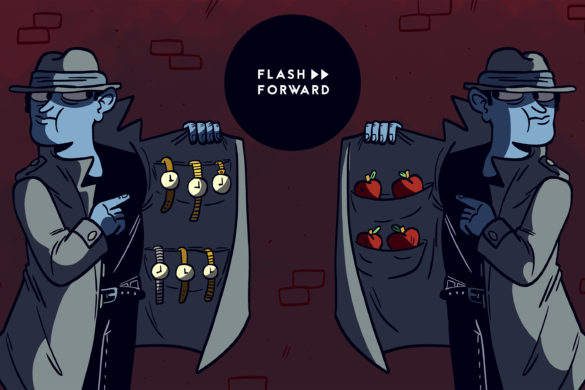
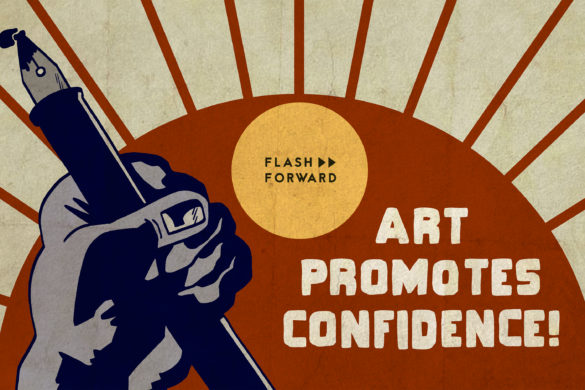
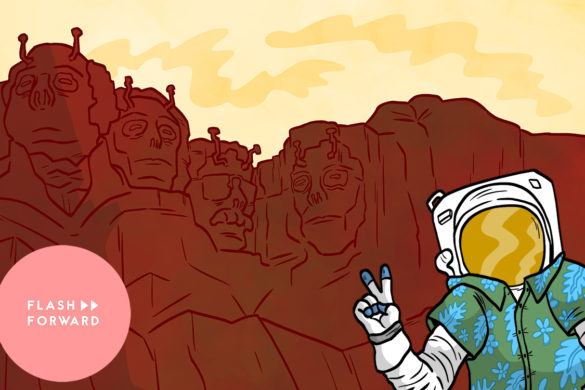
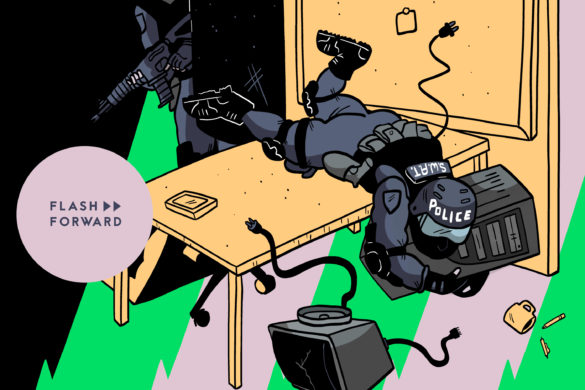
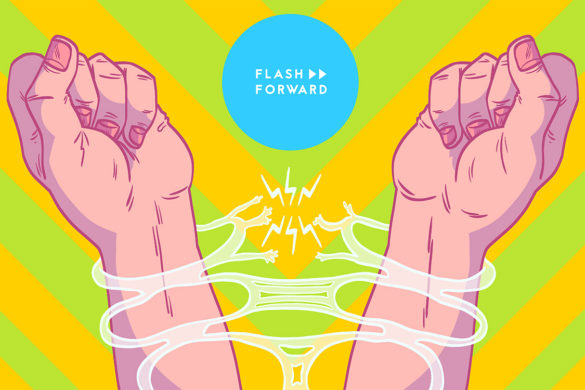
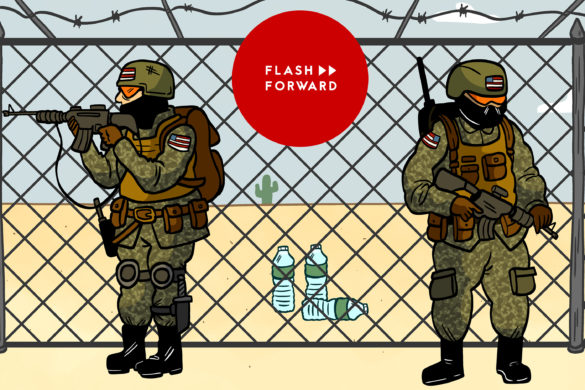
3 comments
[…] Hanlon continued the discussion on space crime with CTV. She was also featured this month on Legal Talk Network and Flash Forward’s podcast, “Moon Court.” […]
[…] CRIME: Moon Court […]
[…] you might be thinking: wait a minute. Can you own property in outer space? If you’ve heard our past episode about space and law you might remember vaguely that there is some kind of treaty about […]